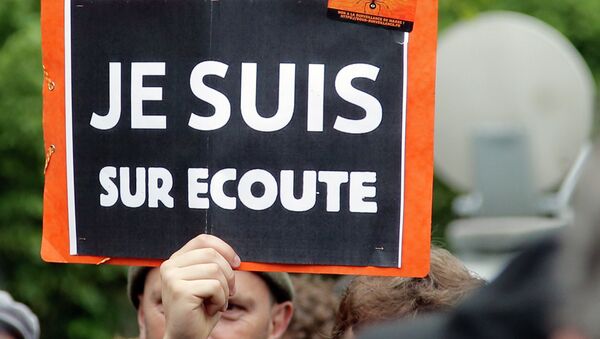Amnesty International and Privacy International have both warned that the French Prime Minister Manuel Valls' sign-off without court approval did not provide adequate checks and balances. They claim the bill would take France a step closer to a surveillance state where nothing is secret except the surveillance itself.
While the government presents the intelligence bill — introduced following the deadly terrorist attacks in Paris that targeted the satirical weekly Charlie Hebdo and a Kosher supermarket — as a counter-terrorism measure, it would also allow the prime minister to authorise intrusive surveillance measures for several other broad and undefined goals such as "essential foreign policy interests".
Happening today: #France votes on draconian #surveillance bill. https://t.co/94X1xcX3mO #UnfollowMe #24HAVANT1984 pic.twitter.com/YNAKjZUDo6
— Gauri van Gulik (@GaurivanGulik) May 5, 2015
"This bill would take France a step closer to a surveillance where nothing is secret except the surveillance itself. Even journalists, judges, politicians and people who have unwittingly come into contact with alleged suspects could be subject to invasive surveillance," said Gauri van Gulik, deputy director for Europe and Central Asia.
"French authorities could soon be bugging peoples' homes, cars and phone lines without approval from a judge, even where there is no reasonable suspicion that they have done anything wrong."
"Disproportionate" Intrusion into Privacy
Transparency International criticised the provisions in the bill empowering the intelligence services to request that ISPs place mass monitoring technologies on all of their networks.
The equipment will allow them to collect the traffic of all Internet users and to then search for patterns, defined by the Government, intended to reveal terrorist threats. However, no details are provided as to what would define a "terrorist-like" pattern.
#France: Halt rush towards #surveillance state http://t.co/hqUNC2MVkQ #UnfollowMe @AmnestyOnline pic.twitter.com/R9fQZviqAC
— Fotis Filippou (@Fotis_Filippou) May 5, 2015
"The deployment of such technology enables the French government to conduct mass surveillance and mass storage of personal data, a clearly disproportionate incursion into the privacy of all French Internet users. Furthermore, representatives from the ISP industry have already started expressing their concerns that such an infrastructure — if it was to be constantly running — would greatly reduce the speed of the Internet in France," a spokesman for Transparency International said.




